Army Mom
by Jennifer Porter
Thelma was trying to brush the sand out of her big hair before her husband Larry came home for the Last Supper she’d planned, when her fifteen-year-old daughter Eunice began shouting. Now since Neecy did a lot of shouting (about her teachers, her frenemies, the Internet being down, her mother’s absent-mindedness) Thelma went on yanking the brush, grimacing at herself in the mirror and realizing she’d yet again applied sunscreen inconsistently and was now wearing a white mask where her sunglasses had been during their family day at the beach. Not that the whole family had gone to the beach; Larry, his typical fun-sucker self, had gone to work instead.
Eunice barged through the bathroom door.
“What is it, Eunice? You scared me to death!” Thelma turned, and with her eyes wide, looked something like the Hamburglar.
Eunice was momentarily shocked before erupting in laughter. It seemed to Thelma that lately Neecy either mocked her or yelled about her motherly incompetence. With her thickly-lashed, large, bedazzled-green eyes and disconcerting stare, Neecy was in high-demand as a plus-sized model. “You forgot …,” she said, pointing and smirking.
Thanks to Neecy, she knew every last one of her beauty flaws. And what she should do about them—immediately! Thelma liked her big hair. It had snagged Larry back in the 90s. Change, to Thelma, felt like panties riding up her crack. “Now, if you’ll excuse me, I was using the bathroom.”
Scooter, Thelma’s oldest child and the guest of honor at the Last Supper (or the Judas if you wanted to look at it that way and Thelma did look at it that way), popped his head in the door. “Anybody seen Lucky?”
“That’s what I was trying to tell you,” said Eunice, “when you frightened me with your new sunburn. Look, Scooter, look at Mom’s face. She did it again.”
“My name is Lawrence,” said Scooter.
Eunice rolled her eyes.
“Can’t you find Lucky?” Thelma asked. Lucky was Larry’s dog: a Chihuahua he’d adopted at a last chance pre-execution guilt trip in front of the Petco as he was going into Michael’s for more scrapbooking supplies. “He’s lucky I happened by,” is what Larry told everyone when they met the dog. “He’s lucky I’m the kind of guy that looks past the scabs. He’s lucky I have a tender spot for the abandoned. He’s lucky …,” and at this point Thelma would chime in and tell Larry to can it. There was nothing Larry liked more than talking about himself in the guise of talking about something else.
“No, and come to think of it, I can’t remember him being in the van on the ride home,” said Scooter. “It was quiet instead.”
“Or getting him out of the van,” said Neecy, “when we got home.”
Thelma shook her head, trying to remember. It had been a wonderful day; the hot sun had made her so sleepy. She’d not slept well the night before, thinking about Scooter’s betrayal. “Come to think of it,” she said, “I can’t even remember him being on the blanket when we packed up and left.”
Eunice shook her head, her large eyes growing larger, a terrible realization spreading across her pale pink cheeks.
“Can you?” Thelma asked Scooter.
“No, Mom, I can’t. I think we left him at the beach,” he said, matter-of-factly, all grown up.
“What? No way!” Thelma burst through her children and began yelling for the dog. “He’s got to be here somewhere.” She frantically raced around, looking under beds, inside closets, down in the basement, calling and whistling for Lucky. Scooter searched the fenced back yard and Larry’s tool shed, and Neecy searched the van.
Larry and Thelma’s café au lait colored ranch house had been erected on a grubby spot of land in a rue-burban development, as Thelma called it. Rural as in twenty minutes to the nearest grocery store and suburban as in a bona fide subdivision built upon formerly-farmed acres. It was as if the lower middle-class development had been plunked down into the middle of a stubbled cornfield from the sky.
Thelma and the kids re-grouped on the front concrete porch. “Oh my God,” said Thelma. “I left your father’s dog at the beach.”
“Yep,” said Scooter. “I think you forgot him.”
“Me? It’s my fault? I’m the old person. Where were you guys when this was happening? Your brains are fresh and young and not filled with cryptic memories. Why couldn’t you have remembered Lucky?”
“Uh, maybe because tomorrow I go to boot camp and maybe, I, uh, have something more important on my mind,” said Scooter. “Like the United States Army!”
Thelma gave Lawrence her don’t-you-dare glare, and he averted his eyes. But before she could say anything, Neecy started.
“Yeah, and like, Alexa isn’t talking to Junie because Junie broke up with Nicole to date some stupid boy from another school and so, Nicole is like, completely crushed. She loves Junie. I had to stay up all night on the phone to keep Nicole from cutting,” said Neecy. “I’m tired!”
“Okay, okay. Let’s think about this,” said Thelma and she raised her left hand against the onslaught. “Not Nicole. I mean, not Nicole right now. Cutting is a terrible thing. Don’t you ever cut yourself, Eunice. You know you can talk to me about anything, anything at all. Right? Did you tell Nicole to talk to a trusted adult?”
“Yes, Mom.”
Thelma nodded. “Good. Okay. Lucky! Let’s think about Lucky and oh my God, what am I going to do? What time is it?” Thelma waited for Scooter to check his cell. It was 5:30 p.m. and Larry was due home in fifteen minutes. Thelma collapsed on the porch. “Your father is going to freak out if anything happens to that damn dog.”
* * *
Thelma had wanted to do something special for Scooter’s last day as a civilian. He was due at the bus station at six the following morning. Someone needed to do something to mark the momentous occasion as Larry acted like it was just a regular work day. But it wasn’t: Scooter was soon to become a brain-washed drone of the over-reaching war machine at the hands of the United States Military.
Scooter was already incessantly nagging Thelma to call him Lawrence, rather than the nickname he’d gotten at the age of seven, when he spent an entire summer riding around the neighborhood on his silver scooter with three other boys on their scooters. A natural born leader, Lawrence was quickly in command of the gang and the moniker stuck.
Thelma corralled Scooter, Eunice, and Lucky into her purple mini-van and they headed to the Metamora State Recreation Area, where Thelma had always taken the children to experience the “beach.” 80-acre Lake Minnewanna had a decent strip of sand and was, otherwise, largely wooded. The kids could walk away from the swimmers and cast a line into one of the coves, maybe catch and release a bluegill, a pumpkinseed, or a largemouth bass.
Thelma sat on an old quilt under a tree, near a picnic table but a distance from the beach. Lucky was a barker and a sorry mess, with bulging bloodshot eyes and a skin disorder that resulted in the shedding of large patches of oozing pink skin. He smelled like the bottom of the refrigerator crisper drawer filled with vegetables but never emptied. The dog was on more pills than Thelma’s Nana. And on a special diet. And he had to wear a sun-blocking outfit whenever he went outside. Plus sit beneath a beachside umbrella. When she complained to Larry about how much work his dog was, he said, “What do you want me to do about it? I have to work!”
Thelma’s secret theory was that Larry didn’t love Lucky as much as he said he did. The kudos he raked in for taking care of such a sick pet fed his emaciated ego. The middle child of a family of eight, Larry had been either ignored or berated and was spending his entire adulthood making up for it.
After she hooked Lucky to the tie-out and arranged his umbrella, she put on her bucket hat and slathered her exposed skin with sunscreen, and watched her boy fish for what could be the last time. What if ISIS kidnapped him and one of those God-awful videos was produced? She’d never survive it. If Thelma had her way, her son would be off to art school or poet’s school or even, training to be a lineman for DTE Energy, like Larry.
Now, Thelma realized she’d had to pull herself together every time one of the kids came over to the cooler for a drink. Even Lucky had been unusually quiet after scarfing down the hotdog Scooter tossed him. But he’s never quiet. Had she fallen asleep after lunch? Maybe Lucky had slipped out of his collar and wandered away. He loved to rub his body in wild animal waste. He could be sitting there at the edge of the woods right now, wondering where they were, smelling like a used diaper in the bottom crisper drawer.
“Tell your father I had to run to the store,” Thelma said to the kids.
“Aren’t you going back to the beach to look for Lucky?” said Eunice.
“Yes, of course I am! But please don’t tell your dad. I’m sure Lucky’s sitting right there, waiting for us to come back and get him.”
“Oh, I hope so,” said Eunice. “Poor Lucky! We just left him.”
Thelma took a deep breath.
“This is just great,” said Scooter. “My last day here and Mom forgets the dog. Just great.”
“It’s going to be okay, Scooter—”
“Lawrence!”
“Yes, Lawrence, everything’s going to be fine. I’ll just run up there and get Lucky and dinner will be a little late. Go play the Xbox. I’ll be right back. And promise me something.”
“Don’t tell Dad!” they said in unison.
* * *
After Thelma dropped Scooter off at the bus station and said her goodbyes without embarrassing him in front of the other new recruits (she even remembered to call him Lawrence), she sat in her van and cried, using up three travel packs of Kleenex. She’d rolled out of bed at three in the morning unable to pretend to sleep, worried sick about Scooter and Lucky and ISIS and global warming and the new Enbridge natural gas pipeline they were running through her township and Nicole cutting herself. She desperately wanted to take a handful of melatonin capsules but knew she’d eventually crash and be unable to drive to the bus station.
She’d turned on the desktop PC and started placing Missing Dog ads at every site she could find until she heard Scooter come down the stairs. Then she made him his last good breakfast for a very long time. His favorite: french toast with a dash of nutmeg and real maple syrup, thick-sliced bacon from the local farmer, and hash browns. Everything organic and whole and pure. Scooter had joined the Army in secret, only telling her after, and all she’d managed to say was, “I hope you like eating powdered fake food that comes out of poop brown bags.”
Larry, on the other hand, had sucked in his gut and puffed out his chest and said, “I’m proud of you, son. I considered the military when I was your age and just never had the balls to do it. Your Grandpa fought in Korea …”
“He was a cook on a Navy ship,” Thelma said. “He never even saw Korea.”
Larry sideways eyeballed her. “As I was saying …,” he said in his weird radio-announcer voice that he reserved for special occasions. He held in his paunch, so Thelma knew he’d wrap it up in a tag line before he ran out of breath. “Serving your, I mean, our,” (and here he glared at Thelma as if she didn’t know a damn thing about patriotism) “country is the finest sacrifice anyone can make. Thank you, Lawrence.”
Now she just sat there in the parking lot watching the bus get further and further away and seriously considered crawling into the far back seat and taking a three-year nap.
But, she couldn’t. Lucky was missing and she’d lied to Larry about it—the kids reluctant accomplices. She’d had every intention after returning from the beach to tell him the truth, but he’d gotten the Last Supper under way (much to her surprise), putting the steaks on the grill, and was doing his best to help her create a memory. The kids went along with it, doing their best to fake-it through, while Larry hoped Lucky could come home from the animal hospital tomorrow.
Later that night, after Scooter had gone to a good-bye party with his friends and Neecy had disappeared to play Xbox, Thelma took a deep breath and approached Larry. He was sitting at the dining table, his scrapbook supplies spread all around his thick, hairy arms as they rested on the table top. Colored stock paper, scissors that cut squiggles and zigzags, inked stamps of Chihuahuas, the Stars and Stripes, a boy fishing, and stickers that said things like: scooter, sundaes, son. Larry had his head down and tears dripped onto his scrapbook. There were shudders in his shoulders.
“He’ll be all right, Larry” Thelma said, and she held him from behind. “He’s a smart boy, a strong boy.”
“I’m sorry. I just couldn’t go to the beach with you today. I just … couldn’t do it.” He let out a deep sigh. “I never saw this one coming. You know? You spend so much time keeping them safe, mending boo-boos, teaching them how to be good and decent and then they go and want to be something and somebody you never imagined. A soldier, Thelma!” He shook his head. “He never even had a BB gun.”
Thelma rubbed Larry’s neck; his neck was sore after years of working as an electrical lineman. He didn’t have to be up on the poles so much anymore, he was mainly a recruiter now, convincing young people to learn the trade, but his neck stayed sore. Larry grabbed a napkin from the basket on the table and started to carefully wipe the scrapbook page he’d been working on. Larry had taken up scrapbooking on the advice of his union rep for its meditative qualities. Working with electricity had its inherent dangers.
“I like the font you used to write Lawrence,” she said.
Her husband brushed over the word he’d created with letter stickers along the top of the page with the tips of his fingers. “Yeah? I thought it fit him. Has some edge to it. He’s tough, like you, Thelma.”
“Like me?” she said. She didn’t really think of herself this way: on the inside she felt more like a fruit smoothie, everything a whipped mess.
“You’re the one that birthed him at home, and Eunice too! I almost passed out, couldn’t even cut the umbilical cord. Remember? The midwife had to sit me down on the bed.”
What she remembered was seeing Lawrence for the first time, his curly fair hair all wet and plastered against his scalp, his mewing mouth searching for her as she held him close. How his presence made the world a place she wanted to be in rather than a place she always wanted to escape. Having a baby had grounded Thelma.
He’d learned to nurse right away, unlike Neecy, and had taken his first steps at eight months. He’d spoken in complete paragraphs at eighteen months. She thought about all the ankle rubs she’d given him after he’d sprained an ankle skateboarding. How he always got right back up after wiping out; how he never gave up on learning a new trick, no matter how difficult or painful the learning process.
“He is tough,” she said. And she was grateful to Larry for making her realize this in a new way. “Okay, I’ve got to get to bed, Larry. Early day tomorrow. Give me a kiss.”
Thelma knew that if she didn’t find Lucky, she’d let down her family. She was the one that always made everything better. They were counting on her.
* * *
The afternoon of the first day of Scooter-No-More, Thelma plastered Metamora State Recreation Area with flyers of Lucky in his special sun-blocking outfit, with a construction grade stapler. Missing Diseased Chihuahua, the flyer read. Needs his medicine and cannot be exposed to sun. Obsessive barker. Stinks. Last seen in sky blue jammies with matching studded collar. Sometimes answers to Lucky, mostly ignores and does whatever he wants. Please help!
Every six feet, she stapled a flyer to whatever she could: trees, buildings, poles, edges of picnic tables. She hopped in her van and drove over the wooden bridge and then stapled the hell out of the campground that sat on the opposite side of Lake Minnewanna.
And then something dawned on her; she hadn’t even found Lucky’s leash when she’d returned (expecting him to be waiting, tail wagging) had she? Where was his diaper bag, as she called it, with all of his medicines, skin wipes, and allergen-free treats? She thought she remembered packing his umbrella, but it all seemed like a hazy dream with Scooter’s face enlarged and encompassing the center of her field of vision—a shitty grin on his face like one of those cartoons from when she was a kid. She wanted to smack that face and ask him what the hell? The Army! Jesus!
She drove back over to the scene of the disappearance and scoured the picnic area then she searched the nearby brush, garbage cans, even the barbecue grills, like Lucky on the scent of groundhog piss. No collar or leash. No diaper bag. Maybe the bag was at home and Lucky had gotten the leash untied from the tie-out. But where was the tie-out? Had Scooter pulled it out of the ground and set it somewhere at home? She couldn’t even ask him! She had to just wait for him to contact her. It felt like the United States Army had sliced off her right ventricle! Those bastards, seducing her son into being another rusty cog in the military-industrial complex Thelma hated. Why, your son scored so high on the aptitude test, Sergeant Cooper told her, in his boots in Thelma’s kitchen, he could be a Ranger.
“If you’re telling me that to make me feel any better,” she’d said, “forget it. There should be a law against you people talking to our children without our consent.”
“Lawrence is eighteen, Mrs. Spears. He’s an adult and can make his own decisions.”
“Yeah, that’s what happened. He made this decision entirely on his own without you pressuring him. Sure, Sergeant Cooper, and there were WMD’s in Iraq.”
Thelma had to stop obsessing about her son. She had to let the Universe take care of him. She hopped in her van and drove home. What was she going to tell Larry?
***
It had not gone well with Larry. He’d thrown his big hairy arms up in the air like an exasperated Sasquatch. He couldn’t believe she couldn’t keep her eye on his poor little suffering dog—who never asked to be brought into this world and abandoned inside a deserted meth lab. The poison still oozing out of his little body. He didn’t believe her that she’d done all she could under the extreme circumstances with which she’d been faced, what with Scooter turning his back on all she’d taught him to get his Rambo on. She hadn’t meant to, but she threw a dagger when she reminded her husband of his inability to accompany them to the beach that day.
“So, you’re saying it’s all my fault?”
“Yes,” Thelma said. “I think that it’s fair if I say that. You can’t always faint away from the gnarlies of life, Larry. Being married means we’re on the same team, but if one of the team is always going solo on the obstacle course, then, then, it’s like not being married at all.”
She instantly regretted her words yet felt much better. Why did she always have to be the tough one? If anything happened to Thelma, who would take care of everyone? Larry? Ha. He couldn’t take care of himself. He was like a big baby.
No, what Larry really did was always turn the spotlight back to him. When Thelma was first pregnant with Lawrence and so nauseated she lost weight, Larry somehow hurt his back and couldn’t walk for a month. While Thelma was giving birth to Eunice, Larry suddenly got sick and left to buy cold medicine. When Thelma needed progressive lenses, Larry needed two pairs of stronger progressive lenses, one for inside and one for outside. Whenever Thelma scheduled a dental cleaning appointment, Larry claimed he needed an aching tooth pulled.
Now poor Larry was on the phone about his missing dog, basking in the glow of his family’s attention while she once again perused through “Found Dog” ads, called the local vet clinics, and posted flyers in grocery stores. Larry took mental health days, laid on the couch “worried sick” about Lucky, while Thelma manned the Lucky Rescue Mission Team. It didn’t matter that she’d lost her son, what mattered was Larry’s beloved Chihuahua was gone.
She hadn’t found the tie-out or the diaper bag and no one called about the flyer.
***
Oh my God! There were so many missing pets. Thelma couldn’t stand searching through the Craigslist ads. There were even ads about the dead pets people saw on the sides of roads. She got calls from people who were just trying to help, who thought maybe they’d seen Lucky here or there, or had seen a found ad that sounded like it might be Lucky and Thelma started taking down their names and numbers and then she started doing it too—trying to help people find their pets. Heck, she had to read both the lost and the found ads anyway and sometimes they seemed to match up. Missing beagle in Clarkston, found beagle in Ortonville. She’d call and they’d talk and she’d ask them to let her know and they’d call her back and sometimes just to talk and soon, Thelma found herself forgetting about Lucky. She began avoiding Larry out of fear he’d be able to see it on her face.
***
The Complex allowed Scooter to call when he arrived at Fort Benning. He called Thelma’s cell, not Larry’s, and she wanted to point this out when Larry jumped up off the couch after she said, “Scooter!” Instead, she put her cell on speaker phone.
“Hi, Mom,” her son said.
“Hi, honey.”
“Lawrence, Dad’s here too.”
Thelma rolled her eyes at her husband wasting precious phone seconds.
“Oh. Hi, Dad.”
“Hi, son. Didn’t expect me home, did you?”
“Mom, I’ve arrived safely at Fort Benning.”
“That’s good. I wish I could say the same for Lucky,” said Larry.
Thelma poked and shushed him.
“Mom!”
“Yes, Scooter, I’m listening,” she said, glaring at Larry.
“Please do not send any food or bulky items. I will contact you in 7 to 10 days to give you my mailing address.”
Larry grabbed the cell. “I took a few days off to look for Lucky. We can’t find him anywhere. He’s out there somewhere, but where, only God knows. Poor dog.”
Thelma yanked her cell out of his hands and stepped away. “Go on, Lawrence.”
“Thank you for your support, Mom. Good-bye for now. I love you guys.”
Larry and Thelma both said, “I love you too,” their voices competing.
“Mom?”
Thelma knew Scooter was deviating from the script and a lump rose in her throat. “Yes?”
“Don’t forget to write me.”
Thelma rushed the words, “I won’t.” She was certain they’d made her boy hang up before he heard her.
Would her non-conformist son be able to obey all those rules and procedures? The Army was going to try and break her boy’s indomitable spirit, maybe in physically cruel ways. “What the hell was that about, Larry? Jesus! He was calling me! His mother! You’re not even supposed to be here. All you can think about is that stinking dog! You couldn’t even shut up about it. It’s no wonder Scooter ran off!” Then she stormed away, slamming the door to her craft room.
***
During the summer, Thelma sold her handmade, sometimes holiday-themed, wreaths at outdoor arts and crafts fairs. When the children were little, they’d gone with her as Larry worked countless hours, especially after damaging storms. This arrangement allowed her to earn enough income to stay home with the children but have something to do during the alone hours of the school year. She gathered the wreath material in the nearby woods, her hands callused from bending and shaping the vinca, grape, and wisteria vines. Some of her most treasured memories were of taking the children to gather decorative elements, such as cattails, pheasant feathers, pine cones, abandoned bird nests, and if they were lucky, never-hatched lifeless, colored bird eggs.
But this summer, instead of crafting wreaths, Thelma used her workspace to write Scooter every day. He’d sent her a postcard with his mailing address and a couple of words about a possible phone call a few weeks later. She knew he’d have to “be good” to get his cell phone back and then she started imagining him wearing an orange jumpsuit. She’d have to shake her head and put him in his fatigues instead. Either way, he was a prisoner of his own accord. She’d give half her leg to have one more day with her boy in his Ninja Turtles slippers, his fat little belly sticking out over his drooping jammy pants, asking her for peanut butter crackers. At the age of four his hair had been the color of lightning.
Her heart just wasn’t in crafting anymore. She turned her hands palms up, palms down, startled at how used they appeared. Her knuckles bulged and the calluses had fossilized. Maybe she should do something different. What with Eunice going to college in three years. Plus, Larry was eligible for early retirement. It was time for Thelma to get out of the house.
Dearest Lawrence,
I’m thinking of going to college. When I was your age, the aptitude test said that I was good with numbers. I’ve been ignoring them since.
How is the Complex treating you?
Enclosed is a picture of your favorite Ninja Turtle Raphael and the angels painting by Raphael that makes me think of you when you were snuggly. I’m thinking of renting a small child, aged four, for about a week to get some snuggling.
Did the aptitude test tell you to be a soldier?
Love Always,
Mom
That night Thelma signed up for summer classes at the local community college: Beginning Russian 1 and Introduction to Homeland Security.
***
Thelma was studying her Russian when she got an alert that an email came in to LuckyRescueMissionTeam@gmail.com. Lucky had been missing for a month, but it had only really weighed on Thelma this past week after Scooter scolded her for not looking harder in his first phone call home. “It’s like you don’t care, Mom,” he’d said.
She’d wanted to tell him that maybe she didn’t. She’d wanted to tell him that for the first week of Scooter-No-More she checked to see if it was him when someone came home, her steps light and quick. And when it wasn’t him and she had to remember that it wasn’t going to be him because he’d joined the Army of all goddamn things, it was like a bucket of cold water over her head. Neecy started calling out when she walked in the door, “Mom, it’s me Neecy.” Then Thelma could be privately disappointed, her heart contracting enough that she sat down a moment or two before she went and said hello to her daughter.
She wanted to tell her boy that the house was different now that he was gone. There was a big empty space that followed her around like a haunting, and even when Neecy was there, all she could think about was that Scooter was not. Her job as Scooter’s mother was pretty much finished. And soon, Eunice would be gone too.
Besides, Lucky had made it apparent at every possible opportunity that he felt nothing but disdain for Thelma. Even though it was Thelma who wiped his oozing patches day in and day out and it was Thelma who took him fun places like the beach. Without the dog, Thelma’s day opened in unexpected ways. She could hang out at the Burton Historical Collection at the Detroit Public Library reading the letters of Civil War soldiers or walk across Woodward Avenue to the Detroit Institute of Arts and stare at the Rivera murals. It didn’t matter that it was 10 a.m. and time for Lucky’s pills. Or noon and time for Lucky’s raw foods lunch. Or 2 p.m. and time for Lucky’s wipes again.
Thelma began truly enjoying her Post-Scooter Period. It was as if she’d embarked upon a third life. First she was a child then she was a mother and now she was … she didn’t know. Thelma would look in the mirror and ask, “And who might you be?”
But every day, Neecy asked if there was any news on the little creature and every day she shed a tear or two that there wasn’t and when Scooter had scolded her, well, Thelma realized she was being hard-hearted. It was her kids really that had gotten to her because Larry’s “depression” over the whole thing had only chafed like polyester pants. Especially after he yelled that she’d always hated Lucky and had probably lost him “accidentally on purpose.” It just wasn’t fair that the mother was the crux of the emotional well-being of the entire family. Sometimes Thelma felt as if she’d been buried alive. But, she renewed her efforts to get the word out and she upped the reward for the safe return of Lucky.
The email came from RedChief@gmail.com:
—How bad you want your dog back?
Thelma answered right away.
—What’s up with the Red Chief? I hope you’re not being disrespectful to Native Americans. I don’t watch the Tigers play Cleveland because I cannot stand Cleveland’s offensive mascot.
She only had to wait a few minutes. Red Chief was sitting at his computer somewhere.
—Like I said, lady, you want your dog back or not?
—How did you know I was a lady? This isn’t my personal email.
Thelma didn’t hear from RedChief@gmail.com again. Then she received an email from PrettyinPunk@gmail.com.
—We have your disgusting dog. Put 1,000$ in a paper sack and text me when you are in your van.
—I have my own grocery totes. I don’t do paper or plastic. This isn’t the twentieth century anymore.
Sometimes Pretty in Punk answered the emails right away and sometimes Thelma had to study her Russian while waiting.
—Fine. Use a grocery tote.
—The reward is 100$ not 1,000$. And I need proof Lucky is still alive.
—1,000$ or no dog. I have student loans to pay.
—What did you get your degree in? You sound unemployed. I just started college for the first time in my life. Did I tell you my son joined the Army? I don’t want a degree in anything that doesn’t immediately translate into a job.
—Steer clear of any major that starts with Medieval then. Sorry about your son.
—Thank you! I’m sorry also, but nobody seems to get that. It’s always, “You should be so proud” blah blah blah. But, I wanted so much more for him. Plus I miss him. It’s like driving into the rising sun of early spring without sunglasses.
—My mother died when I was twelve.
—OMG! I’m so sorry.
And then Thelma didn’t get another email.
She tossed and turned that night, afraid she’d wake Larry. Then he’d want to know what was wrong and she’d have to tell him Lucky was dognapped (though she wanted to tell him since he blamed her) and then he’d be calling the Oakland County Sheriff. She wanted to keep the police out of it. Anytime anyone can keep the police out of it they ought to, she thought, especially since you could get shot just for being a certain color. You didn’t have to have a weapon or be a serial killer or have committed a violent crime; no, you just had to come into contact with a police officer and maybe, like, run away from them. Thelma rolled out of bed and quietly made her way to her craft room.
Dear Lawrence,
Lucky was dognapped. It wasn’t my fault, after all. I am in the midst of intense negotiations to secure his release for the least possible amount of money. I’ve always been frugal, as you know.
I wish I could call you.
In my Department of Homeland Security class the instructor wants us to believe that the continuing erosion of our civil liberties is the reason our country has not experienced another attack like the one on 9-11.
Our ancestors who fought in the American Revolution are going to rise up from their graves and haunt us in perpetuity if we continue to avoid facing the fact that our leaders failed us that day and it had nothing to do with enjoying too many civil liberties. The whole thing still stinks to high heaven, like Lucky.
Not that I’m a conspiracy theorist, Lawrence. But still, a B-25 Mitchell bomber crashed into the Empire State Building in 1945 and all its fuel burned and guess what? The building is still standing.
How’s the Complex?
Love Always,
Mom
The next day, Thelma sent an email to PrettyinPunk@gmail.com.
—Here’s my cell number in case you want to talk.
Not long after, Thelma got a hang up call from an unidentified caller. She raced to her computer.
—Did you just try to call? It’s okay if you did.
Again, sometimes the emails were answered quickly and sometimes she had to study her Russian.
—Don’t you want your dog back? You never ask about him.
—He’s not my dog, really. He’s my husband Larry’s.
—The downstairs tenants called the landlord because he barks all the time.
—Oh no! What are you going to do? You might have to move!
—WTF!
—I have to go. Bye.
Thelma got off the Internet. Even though it was only one in the afternoon, she poured herself a glass of Chardonnay. Everything in her life felt different now. Instead of feeling shackled, she felt like she was slipping out of dried-up old skin, slowly but surely, and soon the old Thelma would be a discarded pile in the corner of the living room. A relic of the past: The Thelma who came in last while everyone else got what they needed, while everyone else became who they needed to be while she cleaned and cooked and care-taked and existed in a domestic fog. She hadn’t felt this alive in twenty years.
The next evening PrettyinPunk@gmail com wrote her:
—100$ would work for me.
—100$ ?????????
—For the dog.
—That is a lot of money for a sick Chihuahua. He hasn’t been on his meds for weeks!
—You said the reward was 100$!
—Gotta go! I have to see what my husband and daughter are fighting about. Bye. (:
When Thelma walked into the kitchen, her husband and daughter stopped fighting, turned toward her, and asked practically simultaneously, “Any news on Lucky?” Not: How are you, Thelma/Mom? How are your classes going? How was your day? No. She was the last planet in their solar systems—Pluto the used-to-be-a-planet but is no longer a planet. Always the distant rock.
“No,” said Thelma and they both pulled their heads back like shocked chickens.
“Bite our heads off ‘bout it!” said Eunice.
***
Dear Lawrence,
Negotiations are not going well with the orphaned dognapper. I will continue trying, but am not hopeful in securing a positive outcome. I’m holding off on telling your father and Neecy until I know for sure one way or the other. Talk to you soon! Tell the Complex I said Hello.
Love you,
Mom
***
“Hello?” Thelma answered her cell.
“Hi. This is Amber. I … uh … is this Lucky’s mom?”
“Yes, it is. What can I do for you? I took the Craigslist ad down.”
“I know. I … uh … I’m the one that’s been emailing you. About Lucky.”
“Oh,” said Thelma, her heart sinking. “How are you today?”
“I think Lucky should go home.” In the background, Thelma could hear the dog yipping and yapping and Amber trying to get him to shush up. “It’s okay about the money. I don’t need the money that bad.”
“But he must be such a mess!”
“I can prove to you that he’s all better. Incoming.” Amber ended the call.
Twenty minutes later, Thelma got a video of Lucky growling and baring his fangs then biting a multi-ringed hand with bandaged delicate fingers and pink-painted fingernails that held onto his studded collar so that he’d be in the video. There was soft crying for three seconds. Amber turned the camera on herself. Thelma was very surprised to see her and watched as Amber wiped her face with a Kleenex. Amber’s short dark hair was parted on the side and the bleached-blond long bangs lay flat against her forehead, just over her left eye. She had a nose ring and wide cheeks and a small mouth dabbed with cherry red lipstick. Her eyes were red as if she’d not only just been crying but had been crying earlier, before the call.
“He looks good, doesn’t he?” Amber said to the camera before she turned it on Lucky again for a few seconds.
Lucky’s skin had a few patches but not like before and the patches that were there seemed dry, as if they were healing. Plus his fur had grown out. He’d always been so furless before.
Thelma and Amber texted.
—How did that happen?
—I don’t know. It just started clearing up.
—Do you feed him something special?
—Just regular dog food.
—Like holistic, grain-free, buffalo meat only?
—No, like dog chow. Comes in a huge bag for 5 bucks. I told you already I’m broke.
—Did you use the wipes?
—What wipes?
—The ones in his diaper bag.
—Not really. Too much of a hassle. He likes popcorn. But he won’t watch Netflix with me.
—Dogs can’t have popcorn! Or grapes. Or chocolate.
—Well, he likes it. Popcorn, that is. I know about the grapes and chocolate. He likes lying in the sun, too.
—In his special sun-blocking suit? Under his umbrella?
—Oh, I thought that was a dress-up outfit. No, just in the sun like a real dog. I didn’t take the umbrella, just the dog and the bag. I’m sorry I said he was disgusting before. He’s not really.
And then the texts from Amber stopped.
***
“Lucky was dognapped! I can’t frickin’ believe it. Who would want him? Ha!” Was the first thing Scooter said in the long-awaited-for second call. The three at home were sitting around the breakfast table hunched over the cell phone, their shoulders touching and jostling to be closest.
“What?” Larry looked at Thelma.
As did Neecy.
“That’s what Mom said in her letter. Right, Mom?”
“You weren’t supposed to tell your father just yet, Scooter. I’m still in negotiations,” she said.
“Negotiations? With a dognapper? What do they want? Why didn’t you tell me? We should call the police!” said Larry.
“Oh my God, Larry. Don’t get your panties in a bunch. Lucky’s fine.”
“How do you know?” her family asked.
“Amber sent me a video.”
“You have a video and didn’t tell us?” Neecy said.
A pang pinged in Thelma’s heart from the look on her daughter’s face.
“Who’s Amber?” she asked.
Thelma sighed. “I’m sorry I didn’t tell you guys. But, he looks good. His skin is all better. He has fur again. Amber’s taking care of him, exceptionally well I might add.”
“It’s because you’re studying Russian isn’t it?” asked Larry. “You’re studying Russian and Homeland Security whatever and you’re changing. You used to be happy at home, Thelma, and now look at you. I don’t even know what you do all day anymore.” Larry stood up so fast his gut bumped the table causing a minor earthquake then he went charging out the front door. After a few seconds, his truck door slammed and the engine revved.
“I have to go, Mom,” said Lawrence. “You better get Lucky back.”
“Yeah, Mom. Lucky’s our dog. I don’t know how you can just go and give him to some chic named Amber,” said Neecy.
“He was dognapped, I didn’t give him away! And I didn’t lose him either. And he’s not even sick anymore. Amber healed him.”
“Gotta go,” said Scooter.
“Love you, Lawrence.”
“Love you too. Don’t forget to write me.” As if Thelma could forget.
“I can’t believe you did this,” Neecy said then stood up, her bedazzled eyes glimmering in tears. “You better get him back, Mom. Or, I’ll … I’ll never—”
“What?”
“Speak to you ever again.” She stormed off.
The way Neecy said that, Thelma knew her daughter meant what she said. They were ganging up on her! She was nothing but a maid. There to serve their every command. “Screw that,” Thelma said aloud, and she too, stood up and stormed out.
***
Why did Thelma have to get Lucky back just to make her family happy? Lucky was mean to Thelma, just like he was mean to Amber. Thelma had little thin strips of scars all over her fingers and it wasn’t because she made wreaths, as Larry always exclaimed when she’d shown him. What about what Thelma wanted? What about what made Thelma happy? Not taking care of that stinkin’ dog, that’s what made her happy!
Dearest Scooter,
I don’t know what I want to be when I grow up. Isn’t that funny? Because I’ve been grown up for thirty years. I did very much like being your mother. Remember when we used to visit the bats at Cranbrook? Did you know a mother bat will do just about whatever it takes to return to her pup if, for instance, someone has sealed the entrance to the colony? She will work and work her way back into wherever the colony is to be reunited with her pup. Someday, you will understand this and why I’m so angry at the Complex.
Love you,
Mom
That night, Thelma had a dream in which she was a little brown bat and her two pups were in the attic of her Nana’s old farmhouse and the bat busters had sealed off the hole where she flew in and out to hunt mosquitoes. She kept smashing her funny bat nose against the house trying to find a new way in until she collapsed from exhaustion and fell. Her Nana found her on the porch, picked her up by a wing, and while Thelma dangled there, told her to stop foolin’ around with the Russians.
***
“Larry, you can’t refuse to speak to me for the rest of our lives. Especially, since you can never remember where you put anything,” Thelma said, pouring herself a cup of coffee.
He snorted and turned his face away, standing over his bacon sizzling in the pan with a fork in his hand. “Don’t you need to study Russian or something? Next thing, you’ll be moving to Moscow.”
“I’m not moving to Moscow.” She was emptying the dishwasher. “But I’m going to change my life, Larry, whether you like it or not.”
“Because you don’t like the life you have now? Huh? Is that it?”
“Because it needs to change. Scooter’s gone. Eunice is leaving soon. I’m sick of making wreaths. I want to be able to say that I have a college education. Is that so bad? Huh? Is it?” And she mocked the baby face he put on when he asked stupid questions.
“What’s bad, Thelma, is lying to me about Lucky. I would never have done that to you.”
Larry was right about that. But she was still irritated, so she rolled her eyes, drank down the last of her coffee, slammed the mug on the counter, grabbed her backpack and left for class.
***
Thelma always found herself crying in the van. She never wanted to cry in front of the children and Nana had taught her proper stoicism. She cried so often in the van that she was good at it and didn’t have to pull over. She hadn’t remembered to re-stock the travel packs of Kleenex, so she wiped her nose with antiseptic towelettes from out of the glovebox. They smelled of 1974.
In 1974, her mother had called her in from after-supper dodgeball with the kids on her block to watch Richard Nixon resign on the color television. Her mother explained how the President had wanted to become president again so badly, he’d resorted to theft and deception. The spring before, Thelma and her family had toured the White House. Thelma looked everywhere for President Nixon: down every hall, in every doorway, around every corner. What she wanted most of all was to meet President Nixon. She wrote him a letter and asked him why he hadn’t been home that day. He wrote her back, much to her parent’s surprise, and was very sorry to have missed Thelma. Thelma loved President Nixon. She was deeply troubled that he’d decided to be so bad.
She thought about how Watergate had changed her perception of those in power and how it affected her to this day. She didn’t trust a single one of them. And even though she loved President Obama, she didn’t really trust him, either. She didn’t trust the bankers, the lawyers, the cops. But it was different for her children.
Lawrence was four years old when the planes crashed into the buildings. Thelma was getting him ready to go to Montessori preschool and she had the television on, for some reason that she regretted later. Eunice was in her highchair, trying to pick up Cheerios. She never let the children watch the news. Not that the news was on, but the Today show was. Nana had always watched the Today Show in the morning. Lawrence and Thelma watched the second plane crash into the World Trade Center and the buildings collapse. Thelma cried out and rushed to call Larry on the phone. They stayed home that day and the next day from preschool. Thelma was very distracted and distraught and Lawrence had done his best to comfort her. He whispered “Sssshhh,” and smoothed away the tears on her cheek with his small soft hand. But for months if planes went overhead while Lawrence was outside playing, he’d run inside and hide under the dining table.
And Thelma the pacifist had been very angry. She supported the troops. She wished she could help protect America. She put a flag on her car and a flag picture on her front door and she made a lot of red, white and blue wreaths. And when they had conversations about 9-11 when Lawrence was older and that maybe the official version wasn’t the whole truth, that didn’t matter to him. What mattered was making sure it never happened again.
Of course, Lawrence joined the Army.
And what had Thelma done to act upon her convictions? Nothing. She complained about Larry making her take care of Lucky, she complained about the US House of Representatives keeping her country in a grid-lock, she complained about the military-industrial complex swallowing up her son, she complained about the erosion of civil liberties but she did nothing about it. Lawrence was living his life based upon his convictions, his beliefs, what was important to him. She was so proud of her son at that moment that it traveled throughout her and a shitty grin spread upon her face.
***
Thelma sat in her Department of Homeland Security class, jiggling her left knee and bouncing her pencil tip against her fold-over mini-desktop. It was like she needed to get up and go. Go and do this and go and do that, start making things happen.
The old professor was trying to justify racial profiling. She nudged the young woman next to her and pointed at the instructor and whispered, “You say something. You’re the future.” The young woman shirked away.
Thelma knew a different America, one her children’s generation had a right to know also. It seemed sometimes as if America had gone to New Zealand to be an ex-pat—her red, white and blue ribbons trailing behind her through the mud. She wanted to yell at her, “Wait. Wait for us!”
Thelma stood up, trembling, and made her way down the auditorium stairs. She stopped at the door, turned, and faced the old professor. He’d stopped speaking and stared at her. He looked used-up and worn out, like a filthy rug. She felt sorry for him. He willingly gave up all that made America great for a false peace of mind, he bent over for the establishment, he forgot that America was destined to always move forward.
Her mother had called her in from hide-n-seek to watch the astronauts land on the moon and Thelma felt that brilliant. Ready to face the unknown. Ready to take one small step.
She walked out of class and went home.
***
“Larry,” Thelma called his cell, “we need to talk.”
“About what?”
“Me.”
“You’re leaving me, aren’t you?”
“This isn’t about you. You can’t make everything about you.”
“What is it about then?”
“My life has been about either taking care of you or taking care of the kids or taking care of your dog. It needs to be about me now and what I want to do.”
Larry didn’t answer.
“Hello, hello, can you hear me?”
“Yes, Thelma, I can hear you.”
“Good that settles it then.”
“I guess.”
“Yes, Larry, that’s the deal. Take it or leave it.”
“I have to get back to work,” he said.
“I’m not stopping you.”
“Okay. Anything else?”
“Oh, yes,” she said.
“What?”
“If you want Lucky back you have to get him yourself.”
“Okay.” He sounded a bit like a child.
“See you later,” she said.
“Not moving to Moscow?”
“No, Larry, but I am going to get a bachelor’s degree.”
***
To PrettyinPunk@gmail.com:
Hi Amber- Did I tell you Larry rescued Lucky from a last chance event? Last chance means they’re gassed if not adopted that day. Lucky was left inside a rental house turned into a meth lab and no one found him for a couple of weeks. Toxic fumes had killed the meth heads. Lucky chewed through a plastic water bottle and drank the leaking dribbles. I think that’s where he learned to roll around in rotting carcasses and fecal matter. No one wanted Lucky because he stank. Except for Larry. I gave Larry your cell number. He’ll be calling you soon. Take care, Thelma.
***
Dear Lawrence,
I have good news! Lucky’s home and he’s all better. He doesn’t even smell anymore. I understand why you joined the Army now. We are all a product of the times we grew up in. I want you to know that I support you, that it’s important to be the person you need to be to live in this world and make sense of it, in your own way. I put an Army Mom sticker on the van. I wear my Army Mom sweatshirt to class. I know that you are going to be a good soldier and I’m proud of you.
Love you always,
Mom
BIO
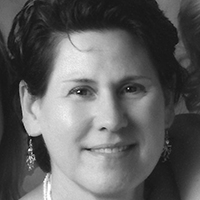 Jennifer Porter grew up in the Motor City as a GM Brat and rock ‘n’ roll enthusiast. Her work has appeared in over a dozen fabulous literary journals. She tortures fine writers with ruthless editing over at The Tishman Review while hiding in her imaginary conservatory.
Jennifer Porter grew up in the Motor City as a GM Brat and rock ‘n’ roll enthusiast. Her work has appeared in over a dozen fabulous literary journals. She tortures fine writers with ruthless editing over at The Tishman Review while hiding in her imaginary conservatory.








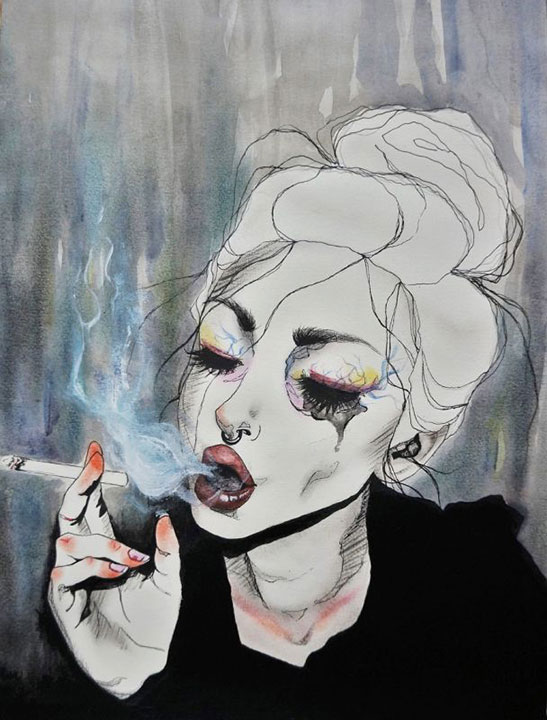
 Harumi Hironaka is a Japanese/Peruvian self-taught painter and illustrator, living in São Paulo, Brasil.
Harumi Hironaka is a Japanese/Peruvian self-taught painter and illustrator, living in São Paulo, Brasil.

 adam l. is currently a freshman at Yale-NUS College, Singapore. he is drawn to the limitation of words, and how even in this limitedness, meaning and emotion can be conveyed effectively. he believes that all poetry is confessional, for all poetry came from within us; and the best ones are vulnerable and raw. at times when words seem utterly insufficient, he turns to physical movement in dance and theatre. if interested in interacting or collaborating, he can be reached at theartistadam@gmail.com.
adam l. is currently a freshman at Yale-NUS College, Singapore. he is drawn to the limitation of words, and how even in this limitedness, meaning and emotion can be conveyed effectively. he believes that all poetry is confessional, for all poetry came from within us; and the best ones are vulnerable and raw. at times when words seem utterly insufficient, he turns to physical movement in dance and theatre. if interested in interacting or collaborating, he can be reached at theartistadam@gmail.com.
 Matt McGowan has a bachelor’s degree in history and a master’s degree in journalism, both from the University of Missouri. He was a newspaper reporter, and for many years now he has worked as a science and research writer at the University of Arkansas. His stories have appeared in Valley Voices: A Literary Review, Deep South Magazine, Pennsylvania Literary Journal, Open Road Review and others. He lives with his wife and children in Fayetteville, Arkansas.
Matt McGowan has a bachelor’s degree in history and a master’s degree in journalism, both from the University of Missouri. He was a newspaper reporter, and for many years now he has worked as a science and research writer at the University of Arkansas. His stories have appeared in Valley Voices: A Literary Review, Deep South Magazine, Pennsylvania Literary Journal, Open Road Review and others. He lives with his wife and children in Fayetteville, Arkansas.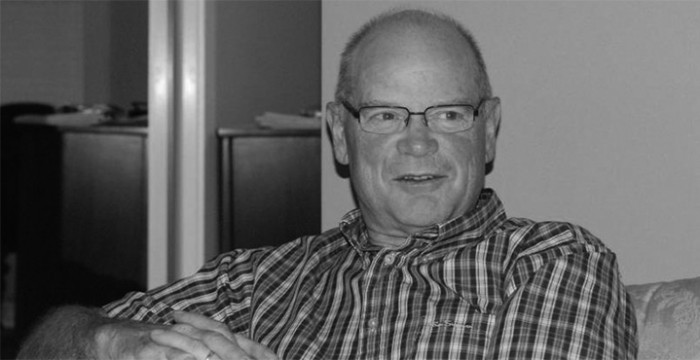
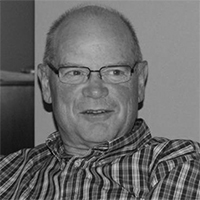 Michael Penny was born in Australia, but moved to Canada as a teenager. He now lives on Bowen Island and works as a consultant on regulating professions. He has published five books of poetry, most recently, Outside, Inside from McGill-Queen’s University Press.
Michael Penny was born in Australia, but moved to Canada as a teenager. He now lives on Bowen Island and works as a consultant on regulating professions. He has published five books of poetry, most recently, Outside, Inside from McGill-Queen’s University Press.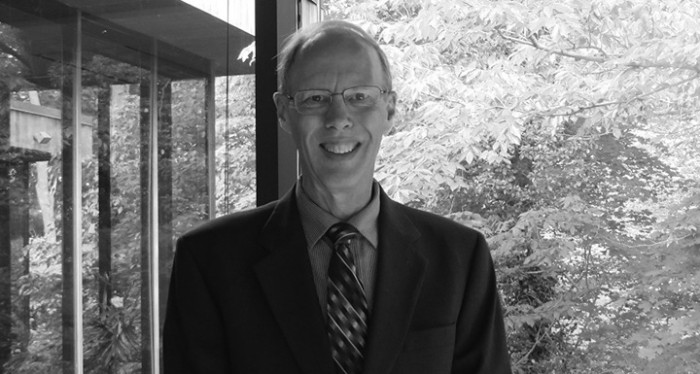
 Larry Fronk grew up in the foothills of the Adirondack Mountains in Upstate New York, and now resides on the east side of Cincinnati, Ohio. Larry recently retired after a 36 year career of public service working in local government in the areas of urban planning, community development and local government management. Upon entering Act II of his life Larry decided to pursue his passion for writing and enrolled in a creative writing class at the University of Cincinnati, Clermont College. This is Larry’s first published work.
Larry Fronk grew up in the foothills of the Adirondack Mountains in Upstate New York, and now resides on the east side of Cincinnati, Ohio. Larry recently retired after a 36 year career of public service working in local government in the areas of urban planning, community development and local government management. Upon entering Act II of his life Larry decided to pursue his passion for writing and enrolled in a creative writing class at the University of Cincinnati, Clermont College. This is Larry’s first published work.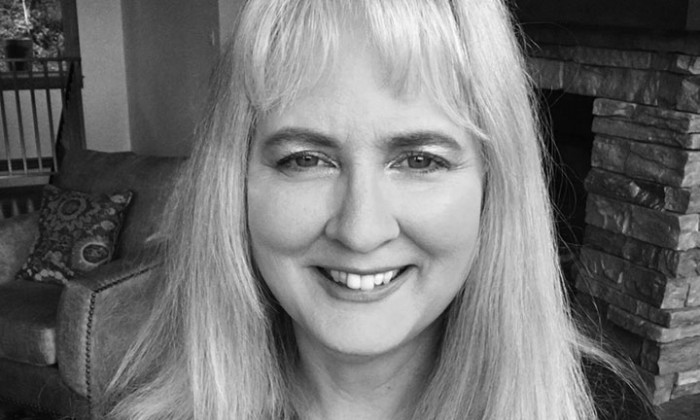
 Belinda Subraman has been writing poetry since the 6th grade and publishing since college. She had a ten year run editing and publishing Gypsy Literary Magazine. Six of those ten years were from Germany where she was a Bohemian outcast among officer wives. She edited books by Vergin’ Press, among them: Henry Miller and My Big Sur Days by Judson Crews. While in Germany she also published the Sanctuary Tape Series which was a mastered compilation of audio poetry and original music from around the world. If you interview her about her publishing days you will discover that she threw out a whole Charles Bukowski manuscript because he told her to just trash what she didn’t like. THEN she found out he was Famous. She might have kept the manuscript but still would not have published it. (It wasn’t his best work). Bukowski, Burroughs and a few other literary figures did make it into some of the first Gypsy issues, however.
Belinda Subraman has been writing poetry since the 6th grade and publishing since college. She had a ten year run editing and publishing Gypsy Literary Magazine. Six of those ten years were from Germany where she was a Bohemian outcast among officer wives. She edited books by Vergin’ Press, among them: Henry Miller and My Big Sur Days by Judson Crews. While in Germany she also published the Sanctuary Tape Series which was a mastered compilation of audio poetry and original music from around the world. If you interview her about her publishing days you will discover that she threw out a whole Charles Bukowski manuscript because he told her to just trash what she didn’t like. THEN she found out he was Famous. She might have kept the manuscript but still would not have published it. (It wasn’t his best work). Bukowski, Burroughs and a few other literary figures did make it into some of the first Gypsy issues, however.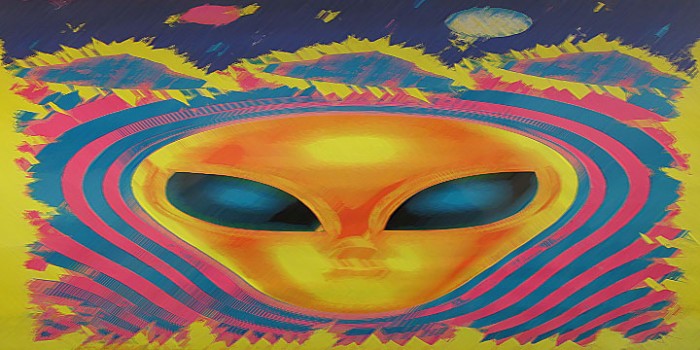
 Paul Garson lives and writes in Los Angeles, his articles regularly appearing in a variety of national and international periodicals. A graduate of the Johns Hopkins Writing Seminars and USC Media Program, he has taught university composition and writing courses and served as staff Editor at several motorsport consumer magazines as well as penned two produced screenplays. Many of his features include his own photography, while his current book publications relate to his “photo-archeological” efforts relating to the history of WWII in Europe, through rare original photos collected from more than 20 countries. Links to the books can be found on Amazon.com. More info at
Paul Garson lives and writes in Los Angeles, his articles regularly appearing in a variety of national and international periodicals. A graduate of the Johns Hopkins Writing Seminars and USC Media Program, he has taught university composition and writing courses and served as staff Editor at several motorsport consumer magazines as well as penned two produced screenplays. Many of his features include his own photography, while his current book publications relate to his “photo-archeological” efforts relating to the history of WWII in Europe, through rare original photos collected from more than 20 countries. Links to the books can be found on Amazon.com. More info at 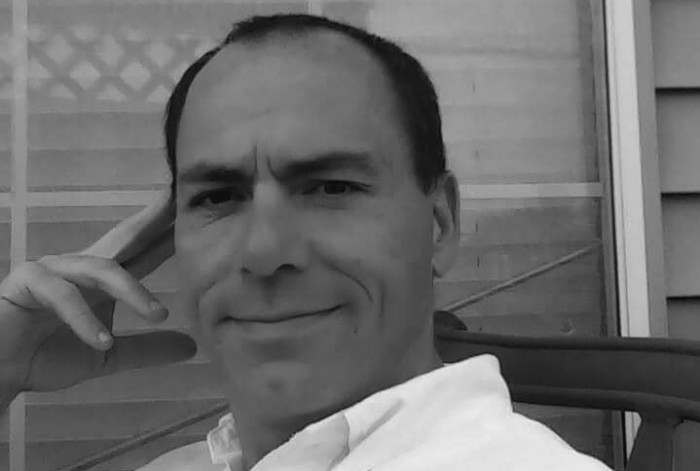
 Billy R. Sauls writes fiction and lives with his wife, Deborah, in Knoxville, TN where he attended the University of Tennessee. He has two sons, a step-daughter, and another on the way.
Billy R. Sauls writes fiction and lives with his wife, Deborah, in Knoxville, TN where he attended the University of Tennessee. He has two sons, a step-daughter, and another on the way.







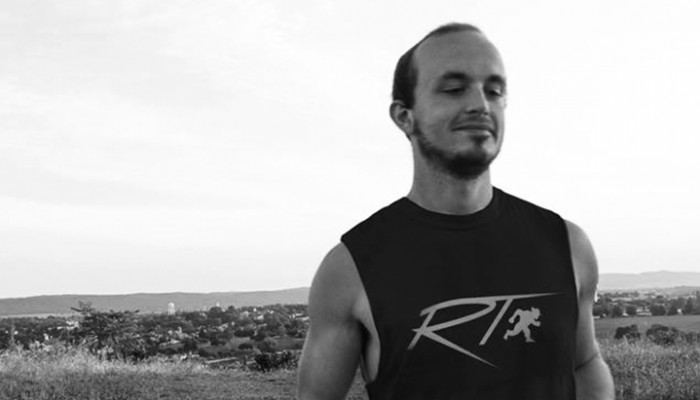
 Bryce A. Johle is from Williamsport, Pennsylvania. He is a senior at Kutztown University of Pennsylvania currently completing his bachelor’s degree in Professional Writing. His work has appeared in Shoofly Literary Magazine, of which he is now a managing editor.
Bryce A. Johle is from Williamsport, Pennsylvania. He is a senior at Kutztown University of Pennsylvania currently completing his bachelor’s degree in Professional Writing. His work has appeared in Shoofly Literary Magazine, of which he is now a managing editor.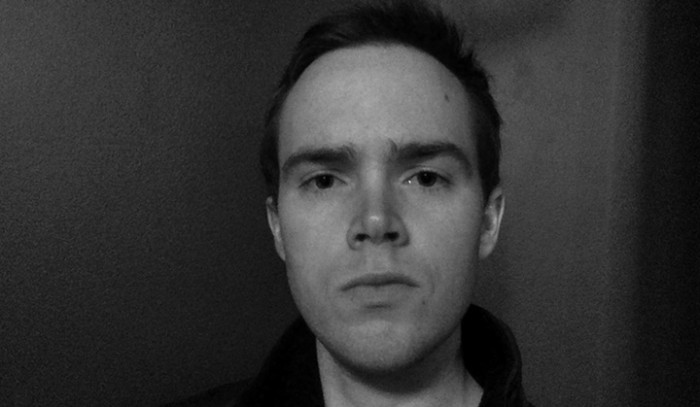
 Patrick Burr studied philosophy at Vanderbilt University and University College London. This is his first published piece of fiction.
Patrick Burr studied philosophy at Vanderbilt University and University College London. This is his first published piece of fiction.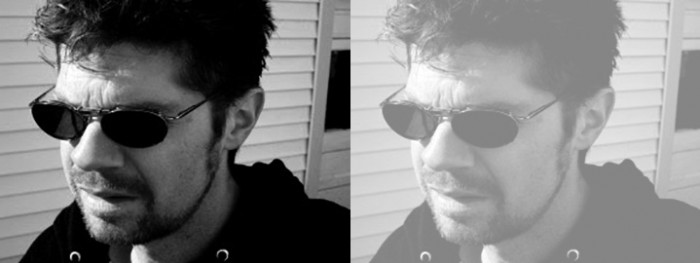
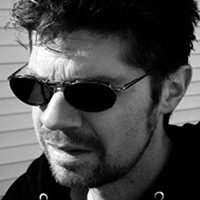 john sweet, b. 1968, still numbered among the living. a believer in writing as catharsis. an optimistic pessimist. opposed to all organized religion and political parties. avoids zealots and social media whenever possible. latest collections include THE CENTURY OF DREAMING MONSTERS (2014 Lummox Press) and A NATION OF ASSHOLES W/ GUNS (2015 Scars Publications).
john sweet, b. 1968, still numbered among the living. a believer in writing as catharsis. an optimistic pessimist. opposed to all organized religion and political parties. avoids zealots and social media whenever possible. latest collections include THE CENTURY OF DREAMING MONSTERS (2014 Lummox Press) and A NATION OF ASSHOLES W/ GUNS (2015 Scars Publications).









 Alina Zamanova is a fashion illustrator and print/textile designer. She studied at University of the Arts London. Currently looking for permanent print design roles. Require sponsorship for working. Originally from Ukraine. She is also available for freelance opportunities both as a fashion illustrator and print designer.
Alina Zamanova is a fashion illustrator and print/textile designer. She studied at University of the Arts London. Currently looking for permanent print design roles. Require sponsorship for working. Originally from Ukraine. She is also available for freelance opportunities both as a fashion illustrator and print designer.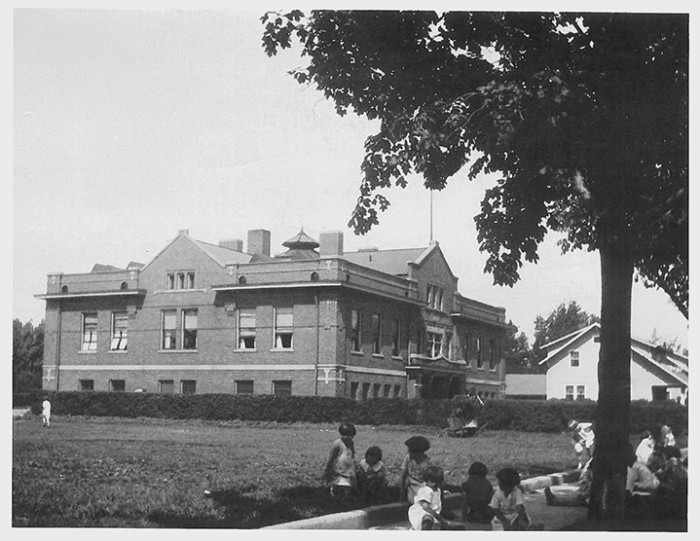



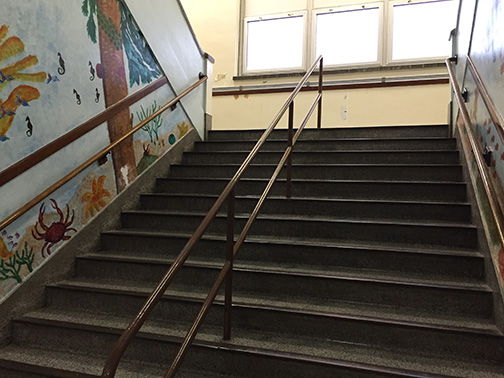

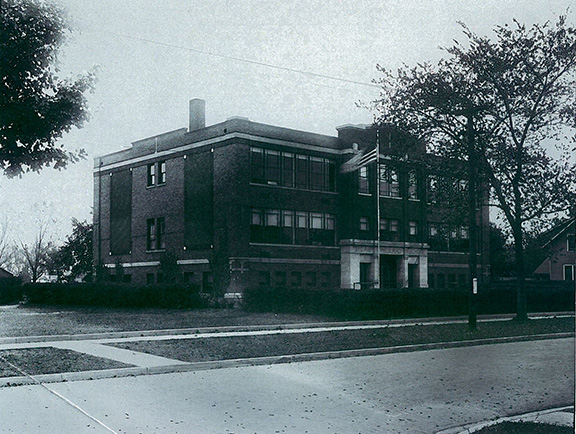
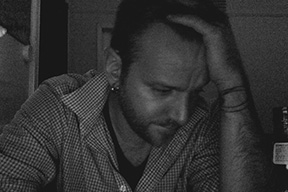 Kyle Mustain received his BA from the University of Iowa, and MFA from University of North Carolina Wilmington. His work has appeared in St. Sebastian Review, Medium, and the Writing Disorder. He balls every day.
Kyle Mustain received his BA from the University of Iowa, and MFA from University of North Carolina Wilmington. His work has appeared in St. Sebastian Review, Medium, and the Writing Disorder. He balls every day.
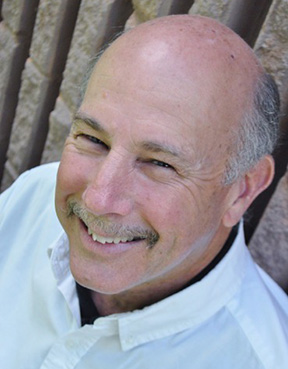



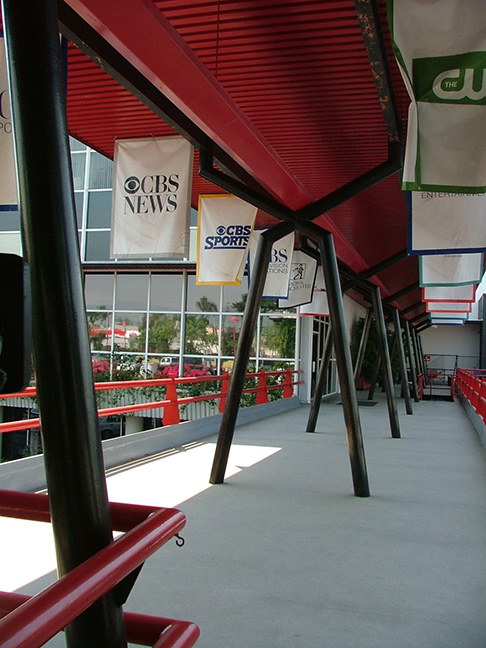

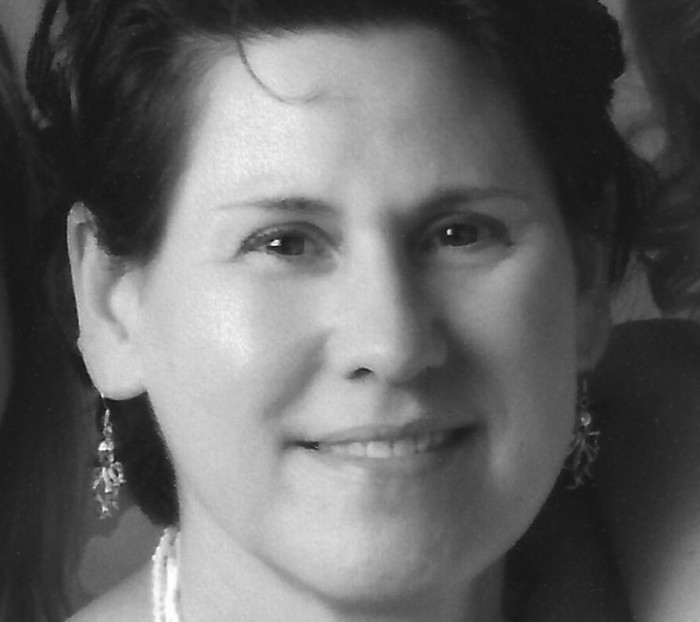
 Jennifer Porter grew up in the Motor City as a GM Brat and rock ‘n’ roll enthusiast. Her work has appeared in over a dozen fabulous literary journals. She tortures fine writers with ruthless editing over at The Tishman Review while hiding in her imaginary conservatory.
Jennifer Porter grew up in the Motor City as a GM Brat and rock ‘n’ roll enthusiast. Her work has appeared in over a dozen fabulous literary journals. She tortures fine writers with ruthless editing over at The Tishman Review while hiding in her imaginary conservatory.
 Sean Howard is the author of Local Calls (Cape Breton University Press, 2009) and Incitements (Gaspereau Press, 2011). His poetry has been widely published in Canada and elsewhere, nominated for a Pushcart Prize in the US, and anthologized in The Best Canadian Poetry in English (Tightrope Books, 2011 & 2014). Sean is adjunct professor of political science at Cape Breton University, researching nuclear disarmament and the political history of 20th Century physics. His ‘Shadowgraphs Project’ has been supported by a creative writing grant from the Canada Council for the Arts.
Sean Howard is the author of Local Calls (Cape Breton University Press, 2009) and Incitements (Gaspereau Press, 2011). His poetry has been widely published in Canada and elsewhere, nominated for a Pushcart Prize in the US, and anthologized in The Best Canadian Poetry in English (Tightrope Books, 2011 & 2014). Sean is adjunct professor of political science at Cape Breton University, researching nuclear disarmament and the political history of 20th Century physics. His ‘Shadowgraphs Project’ has been supported by a creative writing grant from the Canada Council for the Arts.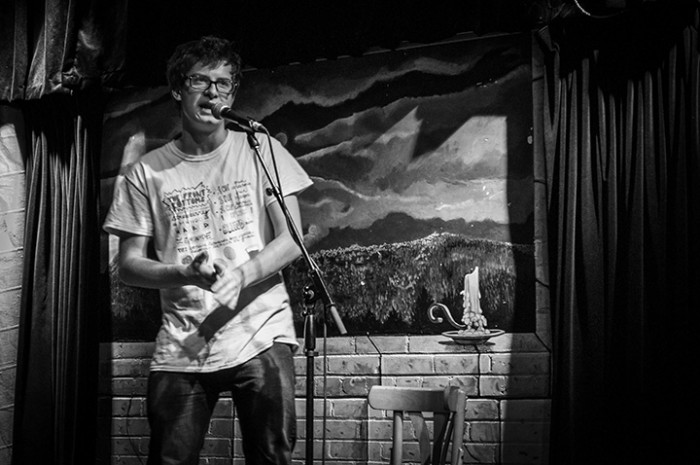
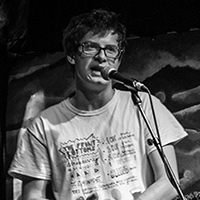 Chris Vanjonack is an English teacher living in Fort Collins, Colorado, where he helps run Slamogadro, a monthly poetry slam that is fast approaching its second anniversary. His fiction has appeared previously in New Haven Review and Buffalo Almanack.
Chris Vanjonack is an English teacher living in Fort Collins, Colorado, where he helps run Slamogadro, a monthly poetry slam that is fast approaching its second anniversary. His fiction has appeared previously in New Haven Review and Buffalo Almanack. 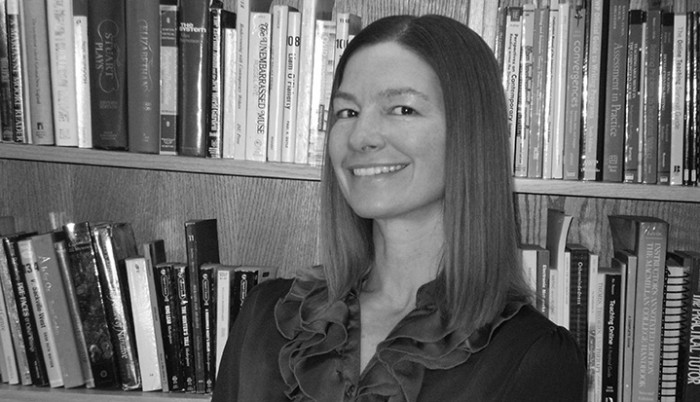
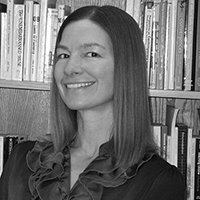 “Where Things Are Made” which was published by in Blunderbuss Magazine (April 2015). Additionally, her article “Occupy,” which chronicled her visit to Zuccotti Park, New York City, during the Occupy Wall Street Movement, appeared in the magazine The Bannock Alternative (December 2011). She holds an M.A. degree in English and teaches composition and literature at Idaho State University.
“Where Things Are Made” which was published by in Blunderbuss Magazine (April 2015). Additionally, her article “Occupy,” which chronicled her visit to Zuccotti Park, New York City, during the Occupy Wall Street Movement, appeared in the magazine The Bannock Alternative (December 2011). She holds an M.A. degree in English and teaches composition and literature at Idaho State University.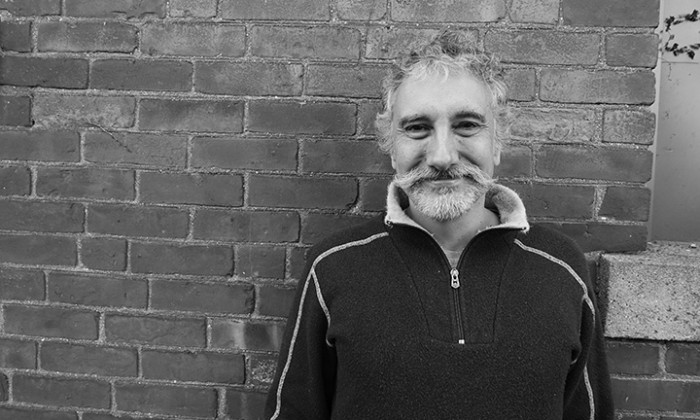
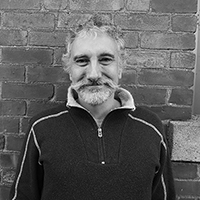 Michael Filas is Professor of English at Westfield State University in Massachusetts, where he teaches fiction writing and American Literature. He earned an MFA in fiction writing from San Diego State University, and a PhD in American literature from University of Washington in Seattle. His writing has appeared recently in Eleven Eleven, Specs, Fiction International, The Information Society, and Passages North. A native of Los Angeles, Michael now lives in Northampton with his family.
Michael Filas is Professor of English at Westfield State University in Massachusetts, where he teaches fiction writing and American Literature. He earned an MFA in fiction writing from San Diego State University, and a PhD in American literature from University of Washington in Seattle. His writing has appeared recently in Eleven Eleven, Specs, Fiction International, The Information Society, and Passages North. A native of Los Angeles, Michael now lives in Northampton with his family.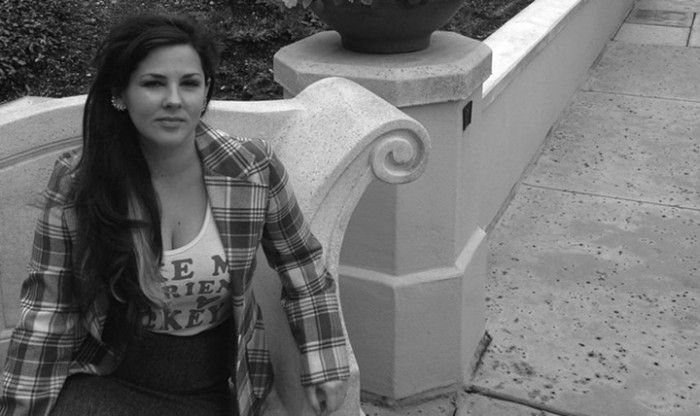
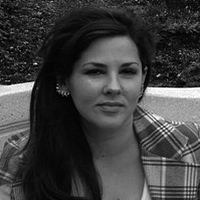 , with her husband and pets. She and her husband own and operate a screen printing and embroidery company, Whatever Tees.
, with her husband and pets. She and her husband own and operate a screen printing and embroidery company, Whatever Tees.











